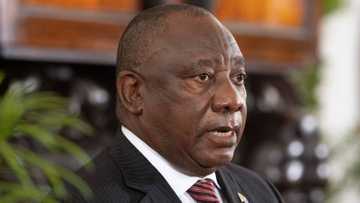How much is the NSFAS allowance for 2025 per month and what does it cover?
The National Student Financial Aid Scheme (NSFAS) is a scheme founded by the government of South Africa. The NSFAS living allowance for 2025 is up to R1,650/month for both universities and TVET colleges. Here is a breakdown of the NSFAS allowance for 2025.
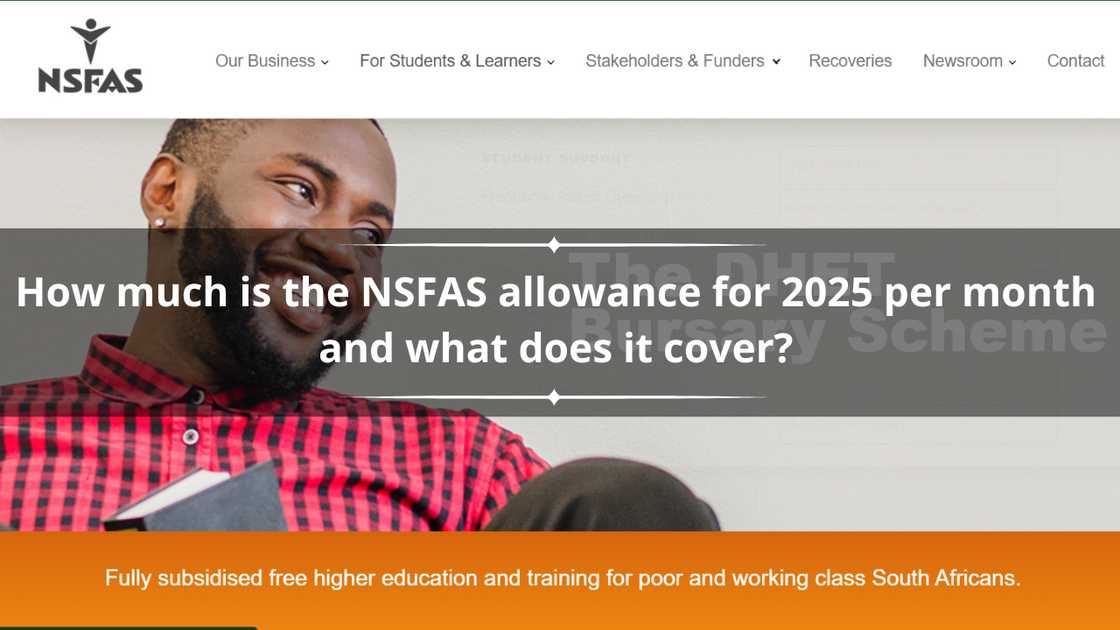
Source: Original
TABLE OF CONTENTS
- NSFAS allowance in 2025
- How much does NSFAS pay for accommodation?
- How much is NSFAS allowance for TVET students per month
- Which are the NSFAS allowance payment dates?
- Which institutions does NSFAS provide funding for?
- Should I apply for NSFAS funding every year?
- I haven't received my NSFAS allowance
- Does NSFAS pay for transport?
- How do I get my money from NSFAS?
- NSFAS allowance is given to students from low-income households to pursue higher education.
- NSFAS accommodation allowance for 2025 is up to R45,000/year for universities and R33,000/year for TVET colleges.
- NSFAS transport allowance for 2025 is up to R7,500/year for both universities and TVET colleges.
- NSFAS living allowance is up to R1,650/month for both universities and TVET colleges.
- NSFAS learning material allowance is up to R5,200/year for both universities and TVET colleges.
NSFAS allowance in 2025
NSFAS is under the Department of Higher Education and Training (DHET). It has assisted numerous people from low-income households to pursue higher education. NSFAS was established in 1999.
The bursary caters to daily living expenses, accommodation, learning materials needed, and transport. All NSFAS bursary beneficiaries must apply to get support.
How does NSFAS work?
NSFAS bursary works by sending financial assistance to bright students to pursue higher studies after completing high school. These students must come from needy backgrounds, i.e., households earning a combined income of R350,000 or less per year.
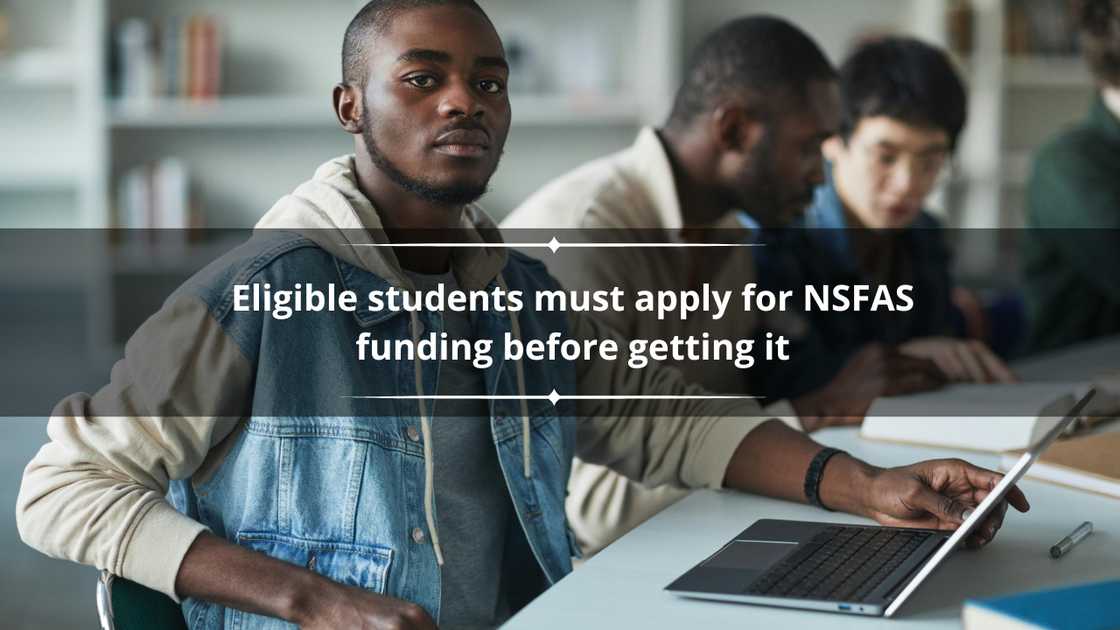
Source: UGC
Eligible students must first apply for the funding to stand a chance of getting it. The support is issued to students pursuing courses in TVET colleges and public universities. Only a few post-graduate degrees are supported in this government-sponsored scheme.
Orphaned and vulnerable children (OVC) from households receiving assistance from the South African Social Security Agency (SASSA) are eligible for NSFAS financing for higher studies.
Criteria for NSFAS monthly allowance
There are set NSFAS requirements that guide who is eligible for financial aid. The following categories of people qualify for funding.
- All South African citizens
- All SASSA grant recipients
- Students whose combined annual household income is R350,000 or less
- Abled-differently persons hailing from households with a combined annual income of not more than R600,000
- Students who started higher studies before 2018 and whose combined annual household income is R122,000 or less

Read also
Matric results: Expert proclaims 'active citizenship' is key to systemic change in education
What does NSFAS cover?
The essentials covered by NSFAS are listed below. The amount issued caters to basic life and education needs when a student is in school. Here are the 2025 NSFAS allowance payments for University and TVET colleges.
University coverage
The latest DHET guidelines indicate that financial support should cover the following necessities.
- NSFAS accommodation allowance for 2025 is up to R45,000 per year. This allowance is as per the costs charged by the university. If a student opts for private accommodation, the amount must not surpass the cost of the university residence.
- NSFAS transport allowance of up to 40 kilometers from the institution, is R7,500 per year
- Living allowance of R1,650 per month or R16, 500 annually
- Book allowances or learning materials allowance up to R5,200 annually
- Personal care or incidental allowance of up to R2,900 yearly for students in catered residences
TVET colleges coverage
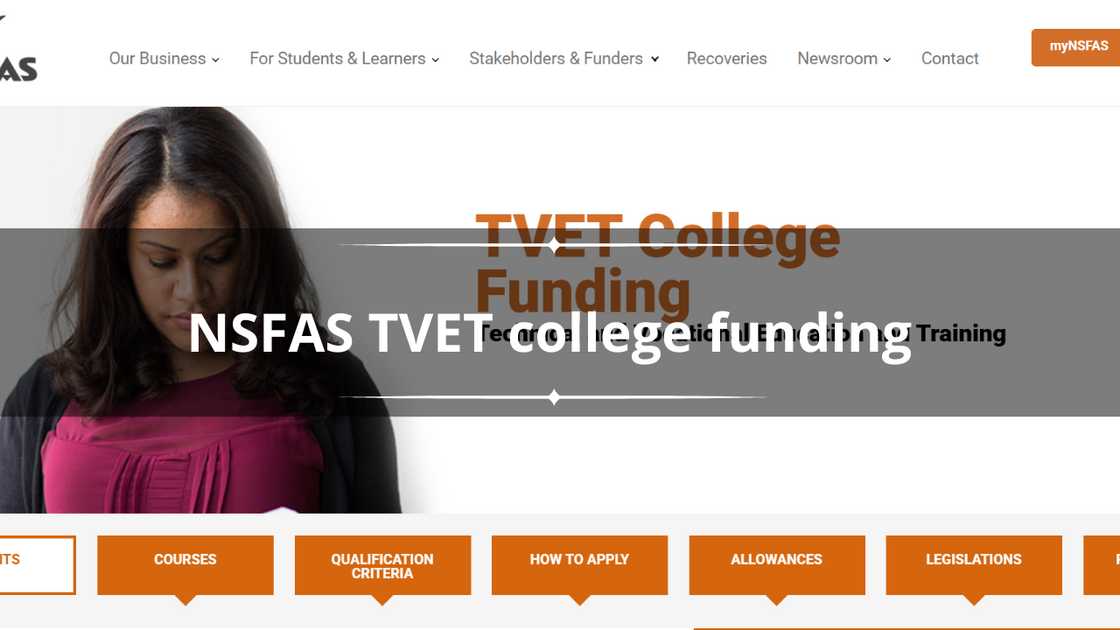
Source: Original
The financial aid offered to students in TVET institutions covers the following necessities.
- NSFAS accommodation allowance in a town or other urban area is R24,000 per year or R18,900 per annum for students residing in peri-urban areas. Those in rural areas get R15,750 per year.
- Transport fee of up to 40 km from the institution, is R7,350 annually.
- Book allowances or learning material allowance up to R5,200 per year.
- Personal care allowance or incidental allowance of up to R2,900 per year.
NB: Abled-differently students are eligible for additional financial support for acquiring special equipment, human support, and medical assessments.
The amounts indicated above follow the guidelines of the Department of Higher Education and Training (DHET). This means that all institutions follow similar guidelines, i.e., the UNISA NSFAS allowance is the same as all other universities.
How many months does NSFAS give allowances?
NSFAS allowances are paid over a period of 10 months. The NSFAS allowance 2025 payment dates are the beginning of each month. The funds are issued on the first week of each month.
NSFAS application
If you wish to benefit from the NSFAS funding, you must meet the eligibility criteria and apply. New applicants should apply through the official NSFAS site.
Continuous students can apply via the site or their institution. Note that you will be required to pay your registration fee while your application is being evaluated.
Application documents
The following documents are required when applying for funding.
- Copy of your South African ID
- Proof of annual household income
- Parents' South African IDs (for dependent applicants)
- A copy of your academic record
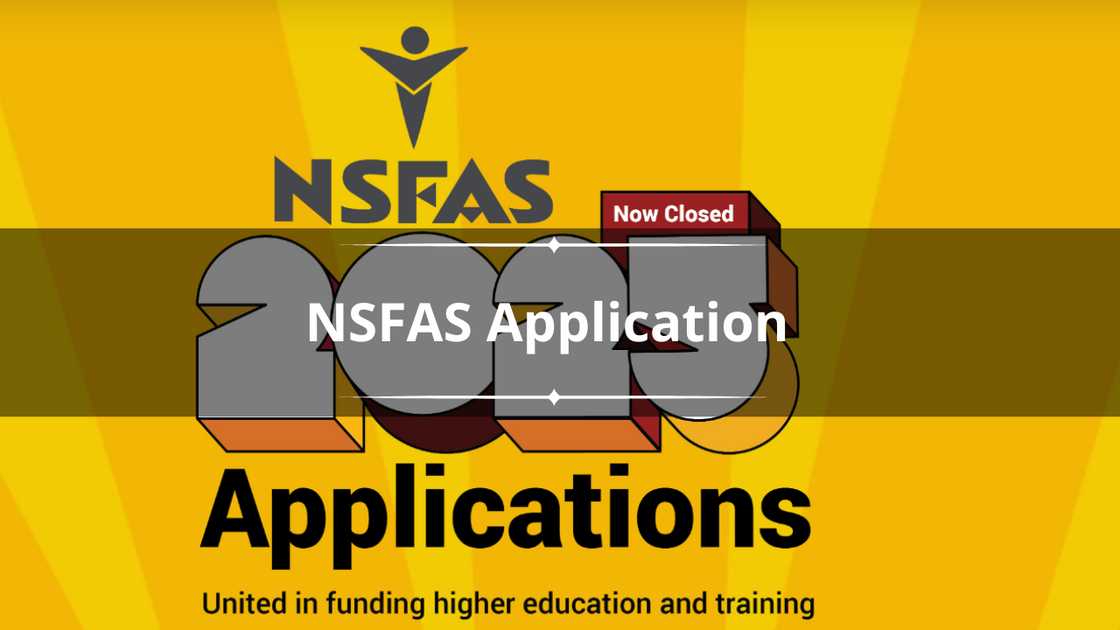
Source: Original
NSFAS contact number
If you need to contact NSFAS for more information, use the contact details below.
- Telephone number: 08000 67327
- Email address: info@nsfas.org.za/ collections@nsfas.org.za
- Instagram: @mynsfas
- Facebook: @National Student Financial Aid Scheme (NSFAS)
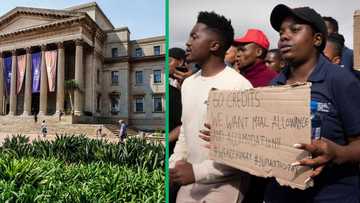
Read also
NSFAS hasn’t paid 20,000 outstanding allowances to students, South Africans angry: “We are suffering”
How much does NSFAS pay for accommodation?
NSFAS pays accommodation costs as per the costs charged by your university. For 2025, the NSFAS accommodation allowance for university students is up to R45,000 per year. If a university student opts for private accommodation, the amount must not exceed the cost of the university residence.
On the other hand, it pays R24,000 per year for TVET students living in a town or other urban area, R18,900 per annum for those in peri-urban areas, or R15,750 per year for those in rural areas.
How much is NSFAS allowance for TVET students per month
NSFAS offers TVET students a living allowance of R1,650 per month. This is besides the accommodation, transport and learning materials allowance.
Which are the NSFAS allowance payment dates?
NSFAS will disburse funds within the first week of each month. Allowances are paid for ten months a year.
Which institutions does NSFAS provide funding for?
NSFAS only provides financial assistance to eligible students who have applied and have been accepted at public universities and TVET colleges for approved funded programmes.
Should I apply for NSFAS funding every year?
No, NSFAS funds you for the duration of your studies. You do not need to reapply for NSFAS every semester or year.
I haven't received my NSFAS allowance
Reach out to your student support office or contact the NSFAS helpline at 08000 67327. Any issues that have prevented your funds from reaching your wallet will be solved.
Does NSFAS pay for transport?
Yes, NSFAS has a transport allowance of up to R7,500 per year for university and TVET colleges.
How do I get my money from NSFAS?
To withdraw your NSFAS allowance into your account, follow the steps below;
- Create your profile on the NSFAS website by clicking myNSFAS on the upper right corner of the page (see image below).
- Log into your account with a username and password.
- Enter your banking details.
- After verification, the money will be deposited directly into your bank account.
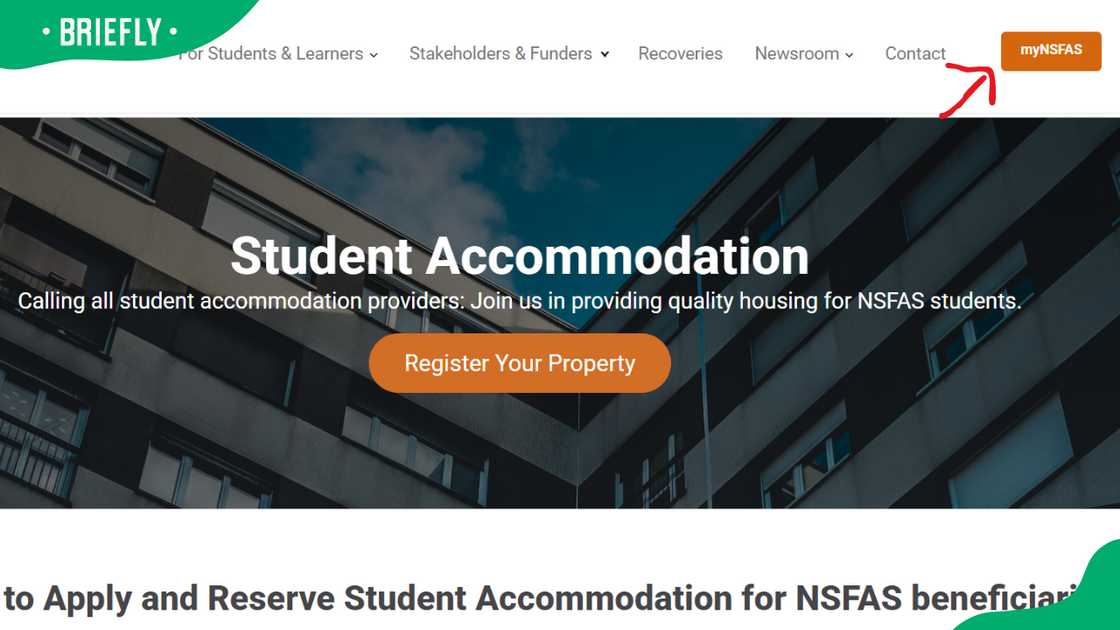
Source: Original
Alternatively, you can withdraw using USSD from stores such as Usave, Checkers, SPAR, Choppies, Shoprite and Boxer. Follow the steps below;
- Dial 134176#
- Enter your ID number
- You will receive a password via SMS
- Dial 134176# again and enter your password
- Withdraw the funds from the store.
NSFAS allowance has aided thousands of people to access higher education in South Africa. Persons who meet the qualification criteria should apply for funding to make their education dreams come true.
Briefly.co.za recently published how to unlock an NSFAS account. It is not unusual to get locked out of your NSFAS account for different reasons.
One of the biggest reasons for account locking is entering an incorrect wallet password more than three times. This activates a lock security feature that protects beneficiaries from fraudulent or unauthorised access to their accounts.
Source: Briefly News

Levana Chester-Londt Levana started writing about art history in 2009 at the University of Johannesburg, where she obtained her Bachelor's Degree in Fine Art. She now writes about a range of topics, including news, lifestyle hacks, anime, celebrities and more. You will usually find a paintbrush in her hand during her spare time as she creates artworks for Levana Jane Studios.

Cyprine Apindi (Lifestyle writer) Cyprine Apindi is a content creator and educator with over six years of experience. She holds a Diploma in Mass Communication and a Bachelor’s degree in Nutrition and Dietetics from Kenyatta University. Cyprine joined Briefly.co.za in mid-2021, covering multiple topics, including finance, entertainment, sports, and lifestyle. In 2023, she finished the AFP course on Digital Investigation Techniques. She received the Writer of the Year awards in 2023 and 2024. In 2024, she completed the Google News Initiative course. Email: cyprineapindi@gmail.com



